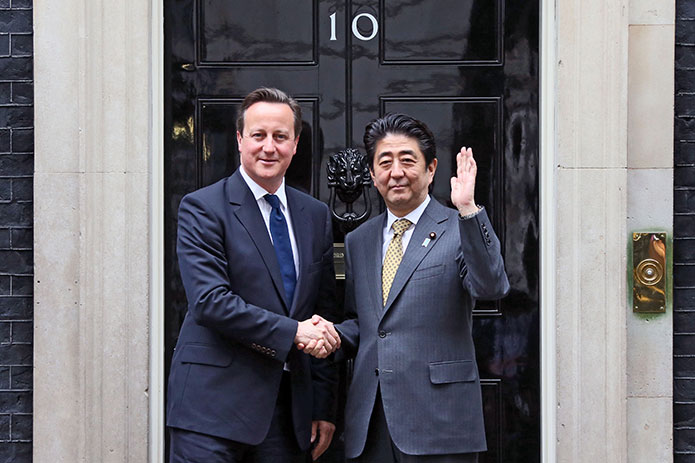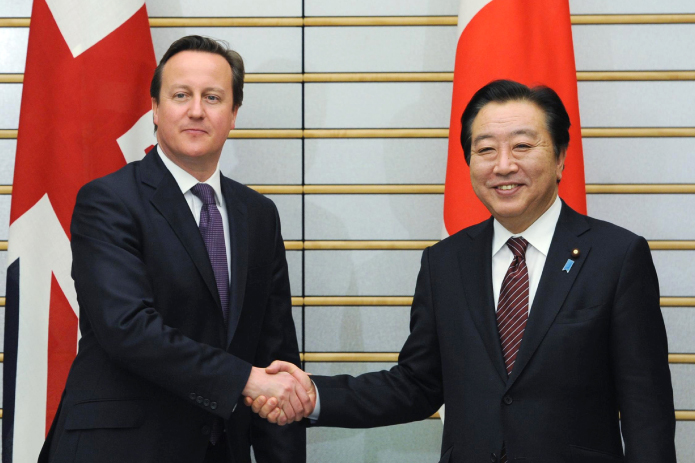Foreign Office to adopt “new commercialism”
UK firms operating in Japan and elsewhere overseas are to be given a significantly greater helping hand from the British government, said Foreign Secretary William Hague at the British Embassy in Tokyo on 15 July.
Shortly after meeting Japan’s Prime Minister Naoto Kan, Hague made his vow in the second of four presentations to set out the new administration’s approach to foreign policy. And he underlined the important part that Japan will play in that new approach.
According to Hague, the changes include intensifying Britain’s engagement with emerging economies; building stronger bilateral relationships for the UK beyond the traditional destinations of Europe and North America; and engaging with people, rather than simply governments.
But while in Tokyo, he focused on the fourth principle — the belief that British foreign policy needs to support the UK economy to a greater degree to ensure economic recovery and long-term growth.
“We will make economic objectives a central aspect of our international bilateral engagement, alongside our other traditional objectives”, Hague said. “We will work in a targeted and systematic fashion to secure the UK’s economic recovery, promote open markets and improved financial regulation, and open the way to greater access for British firms in new markets worldwide.
“We will champion Britain as a partner of choice for any country seeking to invest and do business in Europe”, he added. “And we will use our diplomacy to help secure a strong, sustainable and open global economy that benefits all nations and helps create the basic conditions for prosperity for those who are denied it”.
To achieve those aims, he said, a “new commercialism” would be injected into the work of the Foreign Office.
Hague expressed confidence that the government’s new policies will pay dividends and identified some of the attractions that Britain has to offer foreign partners, including being a world-class destination for international business, a global hub for creativity and innovation, a centre of the world’s financial-services industry, as well as a leading champion of free trade and economic liberalism.
It also helps that the government has vowed to reduce corporation tax to 24% and to make Britain the easiest place in the world to start a business.
And high on the list of firms that Britain wants to woo are some of Japan’s corporate giants.
“Japan matters to Britain”, Hague said, pointing out the long-standing cooperation in economic forums such as the G8 and the OECD, in Afghanistan, as well as on challenges such as nuclear proliferation.
Japan remains a key export market. It is one of the five largest investors in the UK economy. Some 100,000 British jobs are linked to Japanese firms and brands that originated here and are now household names across the UK, he said. But the relationship could be even better, he added.
The removal of both tariffs and non-tariff barriers could deliver an estimated €43.4 billion in additional European Union exports to Japan and €53.8 billion in additional exports from Japan to the EU, he said, while liberalised air services would promote trade and tourism. Energy and the defence and security partnerships need to be worked on, Hague stated, while both countries’ geographic location on the edge of potentially colossal markets could be better exploited.
“But I am also here to announce the significant new emphasis that the Foreign Office will give to providing direct support to the UK economy, helping British business secure new opportunities in the emerging economies and putting our diplomatic weight behind British enterprise, as well as helping to bring Japanese and other investors to Britain.
“Today I have written an open letter to all 15,000 employees of the Foreign Office, including our staff here in Tokyo and Osaka, explaining that we must use our global diplomatic network to support UK business even more intensively and to build stronger bilateral relationships for Britain.
“This is as a matter of vital national importance”, he said. “In the words of our prime minister, our ambassadors will now be economic as well as political ambassadors for Britain”.






